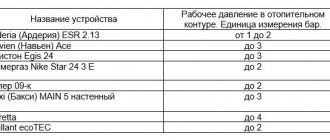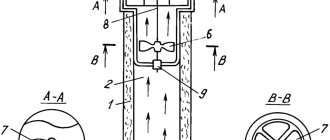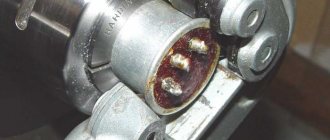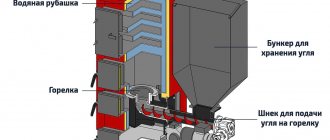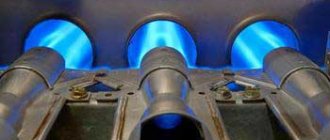If you've noticed that you've been filling up your diesel car more frequently lately, this could be a sign of a problem. Excessive “gluttony” of the iron horse may be due to malfunctions in the operation of various elements, therefore, if problems arise, a thorough diagnosis should be carried out to determine the cause of the overconsumption. What to check first?
Working fluids
The most common problem that causes increased fuel consumption is refueling with low-quality diesel. If the fuel does not meet standard requirements, it burns abnormally. In an attempt to correct the situation, the control unit supplies more fuel to enrich the mixture. The solution to the problem is to change the gas station in favor of a trusted supplier.
The reason for overconsumption may also be hidden in the use of poor motor oil or changing it too rarely.
Fuel efficiency meters
A car's fuel efficiency is assessed by two groups of meters. The first group includes meters for the fuel efficiency of the car itself, the second group includes meters for the fuel efficiency of the car engine.
The meters of the first group are fuel consumption in liters per unit of vehicle mileage (travel fuel consumption) q
n, l per 100 km, and fuel consumption in grams per unit of transport work
q
n, g/(t∙km) or passenger-km.
The meters of the second group include fuel consumption in kilograms per hour of engine operation (hourly fuel consumption) G
t, kg/h, and specific effective fuel consumption in grams per kilowatt-hour
q
e, g/(kW∙h).
Let's take a look at these fuel efficiency meters.
Travel fuel consumption
,
where Q -
total fuel consumption, l;
S
a— car mileage, km.
In this expression, the unit of mileage is 100 km (accepted for cars in Russia and many European countries).
Travel fuel consumption is an easily determined value, but does not take into account the useful operation of the vehicle. For example, a car that transports cargo consumes more fuel,
than a car without a load. Therefore, according to the formula, it turns out to be less economical compared to a car making an empty trip.
Fuel consumption per unit of transport work
,
where m
rp—mass of transported cargo (number of passengers), kg (passenger);
S
rp — vehicle mileage with cargo, km;
p
t—fuel density, kg/l.
Fuel consumption per unit of transport work more accurately estimates the fuel efficiency of a vehicle. However, the practical use of this value is fraught with certain difficulties due to the fact that the amount of transport work performed by a car cannot always be accurately measured.
Hourly fuel consumption
,
where T
d — engine operating time, h.
Specific effective fuel consumption
,
where N e -
effective engine power, kW.
Taking into account the specific effective fuel consumption, we determine its travel consumption:
,
where the value g e
expressed in g/(kW∙h),
N e -
vkW, and
v -
in m/s.
Electronic control unit
The operation of the engine is controlled by the control unit. By analyzing the readings of dozens of sensors, the car’s electronic “brain” adjusts the operating parameters of various mechanisms:
- Frequency and periods of injector activity;
- Injection angle;
- Firing angle;
- Throttle valve opening timing;
- Fuel pressure level.
If incorrect data is supplied by one or more sensors, the ECU launches an erroneous program that does not correspond to the current driving mode of the vehicle. This negatively affects the combustion process of the mixture and entails excessive consumption of diesel.
You can immediately know if the sensor is faulty thanks to the Check Engine indicator on the dashboard. When this signal appears, you should immediately contact a car service to decipher the error and identify the root of the problem.
Fuel filter
Along with electronics, a dirty fuel filter may be the culprit behind excessive consumption. Clogging of this element provokes a drop in fuel pressure, due to which the control unit leaves the injectors open longer to normalize the fuel supply.
With sudden and frequent pressure changes, the ECU does not have time to adjust the diesel supply correctly, which affects the volume of fuel consumed in the direction of its increase. It will also not be superfluous to diagnose and adjust the fuel injection pump to normalize engine operation.
How is diesel fuel consumption calculated?
The calculation of the conditional consumption is not very different from the real one, so many people start from the classical formula - multiplying the generator power indicator by the fuel resource indicator required to generate 1 kWh of electricity. The second value is 0.2 kg.
For example, the generator power is 10 kW. To find out the conditional consumption, you need to multiply 10 by 0.2 kg. That's 2 liters per hour. In reality, this indicator can vary both less and more. Since diesel consumption is affected by a lot of factors listed above.
Air filter
A key design feature of piston diesel engines is the insufficient amount of air for complete combustion of diesel fuel. This problem can be solved by installing a turbocharger.
When the air filter is clogged, the volume of air drawn into the engine is reduced. To make up for the deficiency, the engine takes on an increased load and “eats” more of the fuel mixture. Timely replacement of the air filter at each engine oil change is a way to reduce the fuel consumption of a diesel engine.
Fuel consumption calculator for your route
In order to calculate the average diesel fuel consumption per 100 km, the car owner must fill the gas tank full and drive a short distance, recording the result. Then, using the formula Рт = L/km*100, make a calculation, where:
Diesel fuel consumption (Рт) = Amount of fuel consumed (in l.)/Distance traveled by the car (in km)*100.
This method makes it possible to obtain approximate data on diesel fuel consumption. But because it does not take into account other parameters that affect the rate of fuel consumption by a car; it cannot be called accurate.
Optional equipment
The equipment of the machine also affects the level of consumption. In the presence of air conditioning, powerful lighting and full-fledged car acoustics, the generator works to its fullest. Increasing the generator rotation speed requires an increased supply of energy, which the internal combustion engine receives by increasing fuel consumption.
Thus, if excessive consumption of diesel fuel is detected, it is worthwhile to thoroughly diagnose the injectors and other fuel equipment, check the electronics and condition of the filters, change the oil if necessary, and start buying high-quality fuel from a trusted supplier.
Increased fuel consumption on diesel
Diesel engines are not much different in design from gasoline engines - they have the same cylinder-piston group, the same connecting rods and crankshaft. The whole difference lies in how fuel and air are supplied to the combustion chambers of the pistons - the air under high pressure ignites and at this time diesel fuel enters the chamber and an explosion occurs, which forces the pistons to move.
Many drivers complain that their diesel engines are consuming more fuel. Understanding this problem is quite difficult. The reason can be either the simplest - you need to replace the fuel and air filters, or the most complex - as a result of using poorly purified diesel fuel, the nozzles and injectors are clogged, the pressure in the high-pressure fuel pumps (HPF) is lost.
Some recommendations.
If you see that the computer shows increased fuel consumption, then first check the condition of the filters . Remove the air filter and try to look through it into the light - small holes should be visible. If they are not, then it's time to replace the air filter.
The fuel filter is changed after a certain number of kilometers traveled. If you refuel at a good gas station, and do not buy diesel fuel from someone on the cheap, then look at what the instructions say about replacing the fuel filter. Although replacing such an important element as a filter never hurts. By the way, this is the cheapest and simplest solution to the problem.
A very important point is the correct selection of engine oil . For diesel engines, low-viscosity oil is used; in addition, canisters from well-known manufacturers always indicate what types of engines the oil is intended for. If the oil has a low viscosity, it is easier for the pistons to move, and less slag and scale are formed.
You can also determine the cause by the color of the exhaust . Ideally, it should have a slightly bluish tint. If black smoke comes out, problems are experienced when starting, this is a sign that it is at least time to change the piston rings and all sorts of dirt has settled on the surface of the cylinders. Run your finger along the inside of the exhaust pipe - there should be a dry and grayish residue. If you see oily soot, then look for the cause in the engine.
No matter how trivial it may sound, increased diesel consumption is often associated with the fact that the wheels are slightly deflated and high rolling resistance appears. In this case, you need to check the tire pressure and bring it to normal. Also, changes in aerodynamics are another reason for increased consumption. For example, when the side windows are open, the aerodynamic indicator decreases, and in addition, there is a greater likelihood of catching a cold in a draft.
Fuel equipment
Fuel equipment for diesel is a sore spot. The injection system especially suffers when refueling with low-quality fuel. The injectors supply a strictly measured amount of diesel fuel into the combustion chambers. If the filters cannot cope with cleaning, then there is a high probability of clogging of the nozzles and plunger pairs, in which everything is measured down to the last fraction of a millimeter.
If the reason is clogged injectors, then you can use an injector cleaner; they are available in a large assortment at any gas station. Such a product is simply added to the tank and gradually does its job of cleaning the injectors, and all waste is removed along with the exhaust gases.
If the design of your engine provides for the reuse of exhaust gases, that is, there is a turbine , then remember that to ensure its operation you need a larger amount of diesel fuel. The turbine in some models can be turned off, although this leads to a drop in traction, but if you only drive around the city and sit idle in traffic jams, you need to think about what is more important - economical consumption or traction that is not needed in such conditions.
Well, one of the most common reasons is problems with electronics . The sensors supply distorted data to the CPU, as a result of which the computer incorrectly regulates fuel injection and consumes more fuel.
As you can see, some problems can be solved on your own, but sometimes it’s better to go for diagnostics and stop killing your diesel engine.
( 5 ratings, average: 4.40 out of 5)


